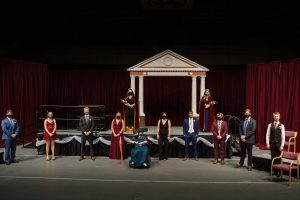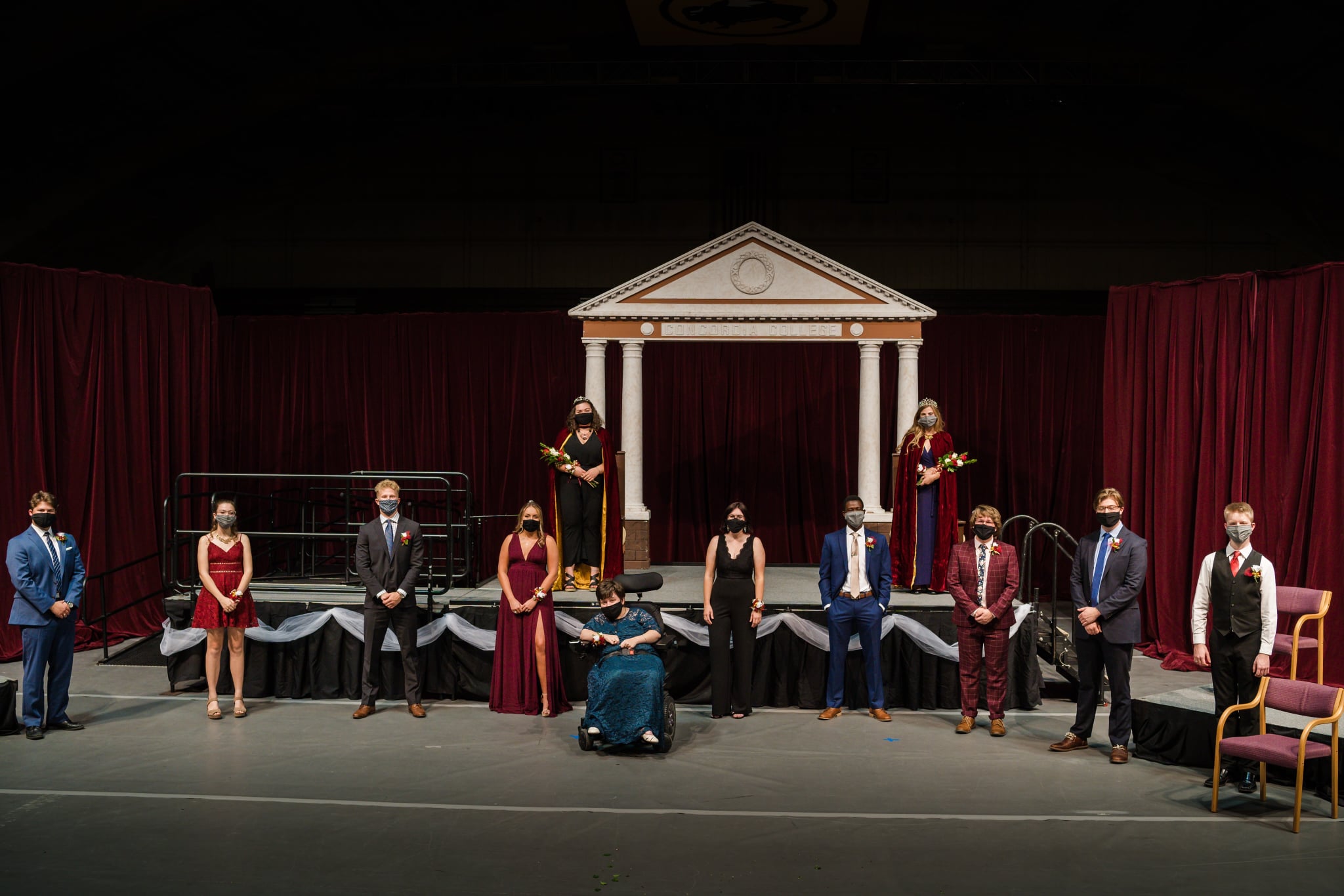The announcement of Concordia’s 2020 homecoming royalty was met with near silence. A few claps could be heard throughout a mostly empty Memorial Auditorium, but the typical energy that accompanies a coronation was absent from the room. The silence wasn’t because of a wildly unpopular homecoming court or disappointment about who was crowned as royalty. This silence was by design. Like most other homecoming events this year, coronation had to make changes to its normal setup to stop the spread of COVID-19.

On Tuesday, September 29, Erin Grabinger and Jess Skindelien were crowned homecoming royalty. Others on the homecoming court included Linden Stave, Yanick Tade, Julia Youngs, Erik Tolkinen, Noah Tiegs, Hannah Papenfuss, Samantha Sabin, Riley Erlandson, Kenny David and Ty Hansen.
To keep Concordia community members safe while keeping some semblance of tradition, coronation was held as a hybrid event. The court, event organizers and faculty escorts held a ceremony without an audience in Memorial Auditorium, while anyone who wanted to watch could livestream the event on Instagram or Facebook. A recording of the ceremony was also uploaded to the website Ustream.
According to Parker Erickson, a member of the coronation committee, a hybrid event helped preserve the magic of coronation.
“That was a question I got a lot, ‘Why didn’t we do it over Zoom?’” said Erickson. “We knew that we could do it safely in Memorial, so that was kind of the big push for it.”
Grabinger noted that the event had a similar feeling to coronation in a normal year.
“My nerves were still up before I walked on stage,” she said. “It was still really exciting to go through the whole process even though there was nobody sitting out in front of us.”
Despite the changes for safety, royalty was crowned and the magic of coronation was preserved.
Skindelien spoke to the importance of keeping traditions like coronation and other homecoming events, even during the coronavirus pandemic.
“[Students] need these kinds of events going on around campus to have something to look forward to and ground us together as a campus,” said Skindelien. “These traditions have been going on for so long and trying our best to pull these off in the safest way that we can is great, because then students can find reasons to come together during this time.”
While the biggest change to this year’s coronation was the event’s setup, the homecoming court makeup also saw a change. Instead of the traditional breakdown of the homecoming court – five candidates for queen and five candidates for king – this year, the court consisted of 12 individuals, chosen by other seniors. Instead of asking students to vote for a king and a queen, they were instead asked to vote for the two candidates they thought embodied the spirit of Concordia to be crowned as gender-neutral royalty.
Erickson explained this change is an effort to make coronation comfortable for all students, no matter their gender identity.
“Trying to make it accessible to everyone is something we should have done a long time ago but luckily we’re doing now,” he said.
Even through changes, those planned and those because of the conditions, two Cobbers who embody the spirit of Concordia were crowned, which in the end, is what coronation is all about. This small victory showed that even during a global pandemic, the spirit of Concordia’s homecoming can persevere.

